Tips For Expats and Soon-to-Be Expats
Dreaming of moving to a foreign country and becoming an expat? Then start planning NOW with these expat tips. The more time you have to prepare, the better off you’re going to be. Believe me, as an American expat who moved to the Netherlands with my husband and three young sons, I learned a lot of tips for expats the hard way. Lucky for you, you can learn from my mistakes and triumphs. Here’s what to know before moving abroad!

Travel Mamas and Grownup Getaways sometimes receive compensation and/or hosted travel and sample products related to blog posts. This story may include affiliate links for which we receive a small commission at no extra cost to consumers. As an Amazon Associate, we earn money from qualifying purchases.
1. Research, research, research.
Once you know where you’re headed, learn everything you can about your new country and city. Get a local guidebook and read blog posts about your soon-to-be home. If you have kids, then research local schools online. If your budget allows, embark on a scouting trip to your desired country before you move, too.
Some destinations are quite casual (like Costa Rica), while others are quite formal (like France) so you will want to pack appropriate clothing options. You should also look up weather conditions for your new home so you know what kind of clothes and gear you’ll need to pack and what can be left behind. My family was not prepared for how quickly it turned cold in the Netherlands and I thought our air freight would arrive before we needed our coats. Not at all. I had to buy boots, hats and mittens in the meantime.

2. Learn the local language.
If the language of your adopted country differs from your homeland, sign up for language foreign lessons as soon as possible. Take a look at our review of Rosetta Stone for families, too! Not only will understanding the local language help you communicate, but also your fellow residents will truly appreciate your efforts. One of the things that has struck me most about being an expat is how kind locals are when I attempt to speak Dutch.

3. Prepare your loved ones.
Not all of your friends and family members will be happy that you want to move your life far, far away. Although they may not like it, eventually you need to inform your loved ones of your moving plans. Be honest and open, but don’t let anyone convince you not to go. It doesn’t matter how many kids you have, your age, if you’re going alone or with a spouse…anyone can become an expat.

4. Hire a relocation company.
For the easiest transition from your home country to your new residence, invest in a good relocation company. The Dutch expat company we used was our lifeline. I sent many, many emails during the months before and after our move. Everything from school enrollment to ordering our Ikea necessities and landlord negotiations all went through them. I don’t want to imagine how difficult life would have been if we didn’t have a relocation company to help us get situated. They even picked us up from the airport and brought us to our new home! Take a look at this list of expat relocation companies.
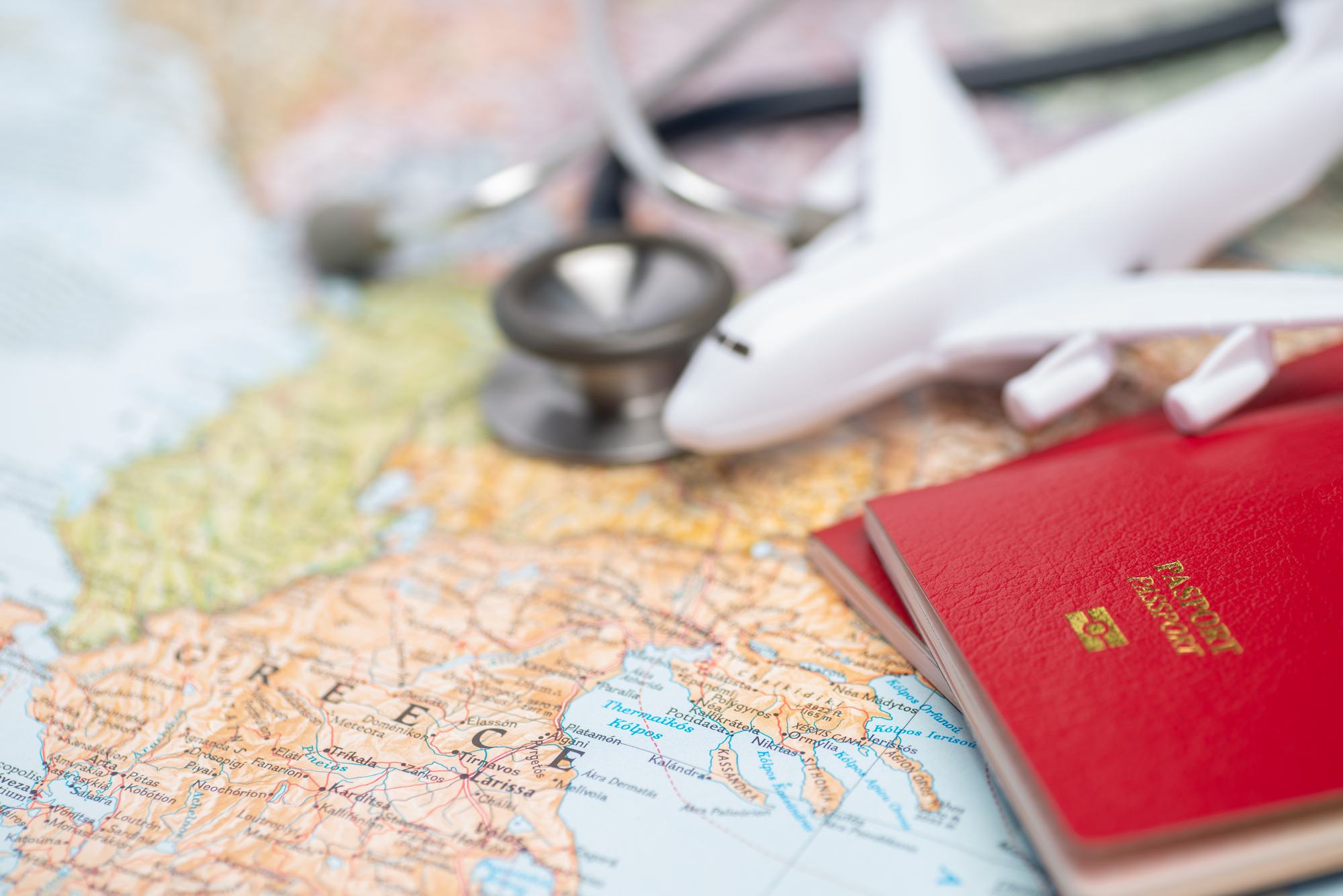
5. Find a local doctor.
When becoming an expat, it’s important to familiarize yourself with the medical system of your new country. Who will be your doctor? Learn the after-hours emergency procedures…before you need them. I wasn’t aware that there are no pediatricians as we know them in the U.S. in the Netherlands. When my children got sick just a few weeks into our move, I felt lost.
Plan on paying upfront (in cash) if you’re not going to be covered by the national insurance. Also, be prepared for a phone menu in a foreign language without an English option. I (still) have trouble calling my doctor in my adopted country and then accidentally hitting the wrong number.

6. Network with other expats via social media and blogs.
Learn about your new hometown via Twitter, Facebook, Instagram, Pinterest and other social media outlets. I made several local contacts prior to our move with whom I have since become friends.
Additionally, expat blogs offer invaluable firsthand experience of what it’s REALLY like living in your new area. Take a look at this website, which lists over 3,200 expat blogs by country and city!

7. Nail down necessities for your move.
Think logistics when preparing for your move abroad. Go through your day, brainstorming what you necessities you use from morning to night. What is the minimum you need for your family to function? Choose a furnished apartment or house in your new country or pick out and set up delivery of furniture necessities prior to arrival. I also advise washing linens before you move and packing them in your suitcases for easy use.

8. Join a local expat club.
Do some online research to find out if there is an expat club in your new town. If there is, then join it! These clubs provide international friendships as well as practical advice. Because of my family’s affiliation with our local expat community, we have made some great friends and embarked on many fun family activities. Thanks to our expat club, my husband and I have enjoyed social evenings out with other couples as well.

9. Practice patience.
Keep in mind that your adopted country may operate very differently than your home country. That’s part of the adventure! For example, paperwork might take a long time to complete and require multiple steps. Our belongings, sent by freight, were delayed in customs for what felt like forever, too. Being patient becomes a big part of expat life.

10. Break these expat tips into manageable steps.
Moving to another country can feel intimidating. If you break all of these expat tips into smaller pieces and tackle one project at a time, then you won’t feel as overwhelmed when it’s time to move. This is a once in a lifetime experience…enjoy it!

Learn more about moving abroad.
Thinking about making the leap to becoming an expat? If you’ll be moving to a country where a different language is spoken, then be sure to read this list of eight compelling reasons to learn a new language.
Decide if expat life is right for you by reading about the experiences of other expats. Many of the books on this list of best travel memoirs were written by expats who share their adventures of living abroad with beautiful descriptions and exciting details.
For those interested in moving to a foreign country, but not sure where they’d like to live, read A Better Life at Half the Price. The book discusses the benefits and pitfalls of living abroad. The author provides detailed descriptions of a wide variety of affordable countries, based on his personal experience and interviews with other expats.
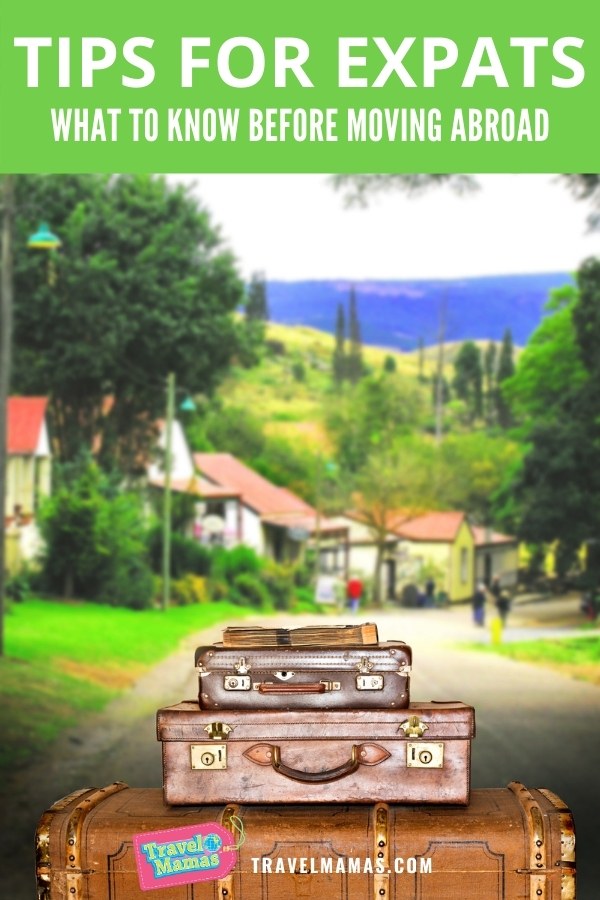
Save these expat tips!
For future reference, save these tips for expats. Simply pin the image above to Pinterest. We hope you’ll follow Travel Mamas on Pinterest while you’re at it!
Have you ever lived in a foreign country? What questions or expat tips do you have? Let us know in the comments below!
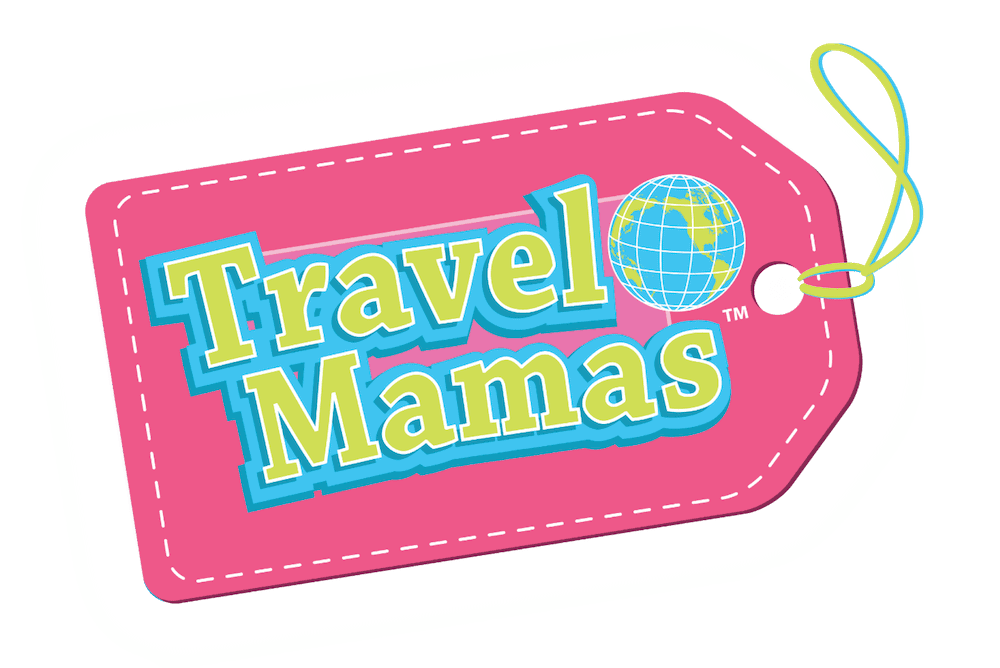





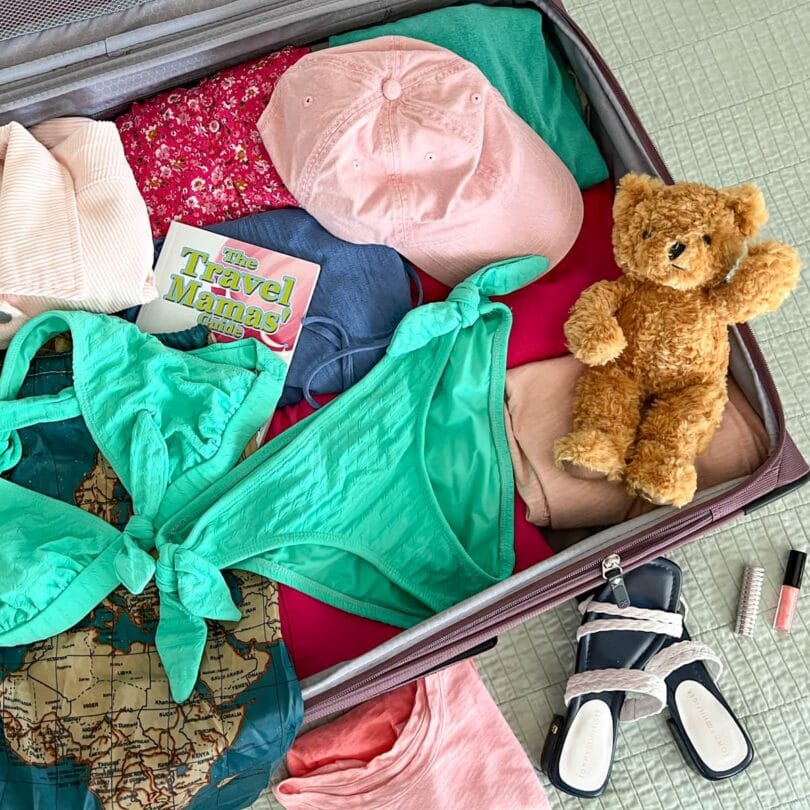

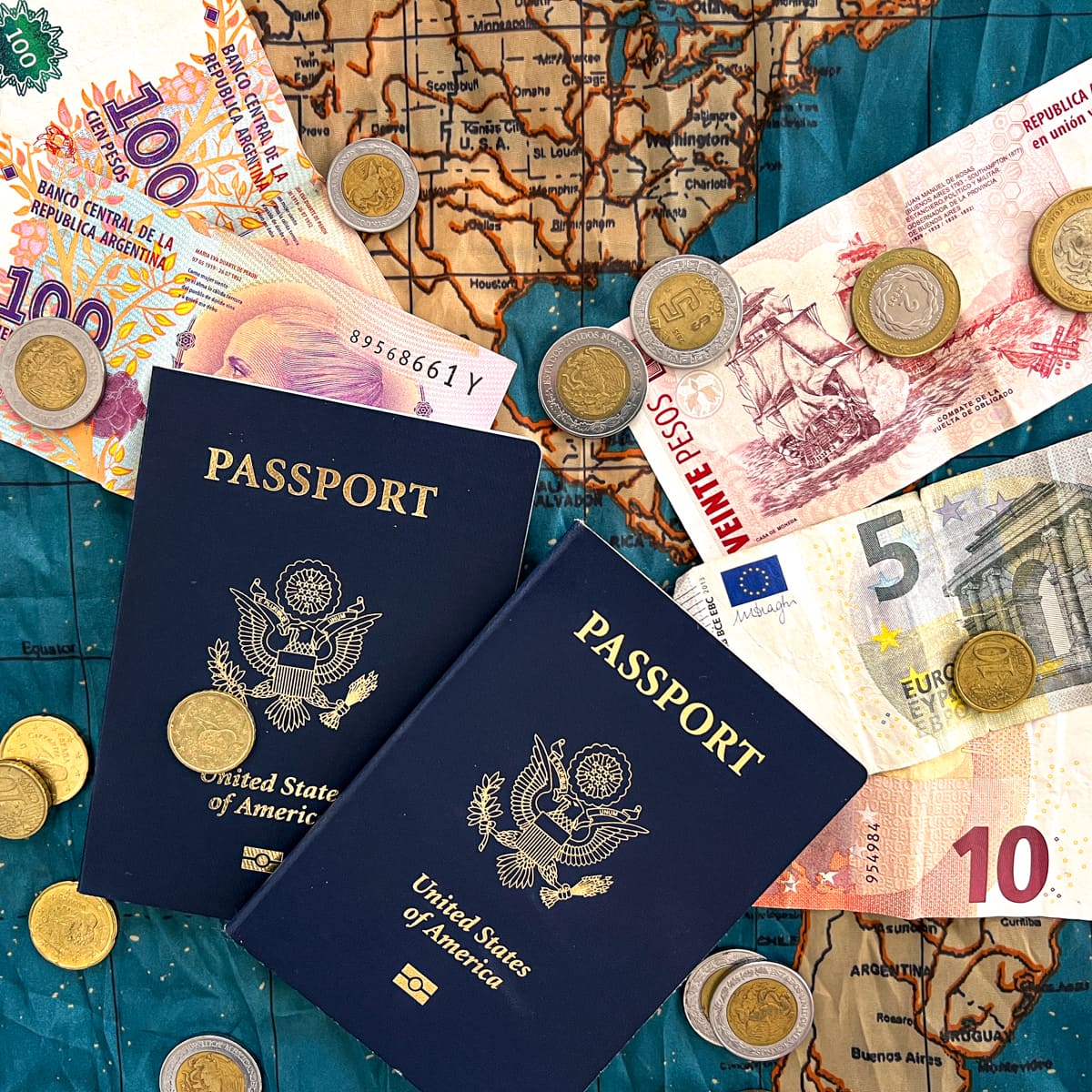


Great points! We moved from Vancouver, Canada to London, England and lived there for 7 years, came back to Vancouver and now 5 years on we’re moving to Germany. I think what I’d also say is if you stay for awhile and then move back – ‘home’ will be quite different and you will be too. It can be a hard adjustment. It’s not just slotting back into your old life. I found that culture shock harder than going to other way, to be honest.
I second what others have said about embracing where you are and looking for local foods you like. Try and research that, and try it out before you go if you can. If you can, get connected with friends of friends already there – a lovely woman who was a good friend of an old colleague in London took the time to Skype with us from Munich to answer questions about specific neighbourhoods. It was so helpful.
Again…VERY helpful advice for our family making the big leap of FAITH this summer! : )
Great, thank you for sharing quality tips about being an expat. Aside passion in travel I am also up to new discoveries. Just wandering to be an expat too.:)
Katie- that is insanely high. And yes- sometimes I wonder if no matter how long we’re here we can never travel enough. I find myself stressing on weekends we are just home wondering ‘what should we be doing??’
And Laurel- that’s a great idea, I never thought of that!!
Great tips! I am not an expat, but I live part-time in Italy. I love reading the Florentine newspaper the expats put out and get so much wonderful information that way.
Laurel – Great tip, thanks!
I would add get tax advice. Taxation when we lived in London was especially complicated and HIGH. You’ll need to figure out if you’re going to sever state residency or not. If you live in California, paying an extra 9% plus UK tax plus AMT is massive. And, travel as much as possible. We traveled a lot while overseas (7 years!) but it now doesn’t feel like it was enough.
Michele I was amazed at how helpful Twitter and blogs were prior to our move- and now here months later as well.
And freaking out is completely normal (you’re so right!) I remember going through that last day in a total haze- I think that was a self-defense mechanism. How strange to board a plane and leave your life behind!
Stellar advice, both in the post and the comments! When we were getting ready to move to Malaysia from Texas, I found connecting through social media to be extremely helpful. Future expats should also know that it’s normal to completely freak out, whether it’s before you get on the plane or even a few months after you’ve arrived at your new home.
Andrea- I almost drove myself insane when comparing my washer/dryer from back home. The size! The speed! And here I should just be thankful to have one 🙂 Thanks for the tips!
Wandering Eductors & Keryn thank you both for your comments as well. I honestly do not think I could have done this without the support of our company. They were such good sports, they also play a role in our upcoming House Hunters episode. I love them and still keep in touch.
Jessica- feel free to email me farrah@thethreeunder.com with any questions! We are here with my husband’s work visa, but also hope for an extension. I can try to answer any specific questions you like!
Dorine- very good points. Whereas I have not had any serious or negative issues with culture shock- mostly because in The Netherlands English is widely spoken AND accepted- I have a friend in Germany who has struggled a great deal. I was very concerned about experiencing a homesick depression as well- but I think due to our location I did not need to worry. You are SO right with staying away from McDs- the great thing is that there are so many fewer of them here, it’s not as tempting- not to mention you aren’t really driving as much so drive throughs are a thing of the past! Thanks for the great comment and perfect insight!
Learn what culture shock is and its stages. Accept the fact that it will hit your second or third month, and, like the common cold, be inevitable and incurable. However, if handled properly, it passes on its own, like the common cold, and by the time the first year is out, you can expect to find yourself adjusted to the new culture. During months 4-6, when it is in its acute phase, confine your grousing to other expats, who understand and will not be as offended as the locals by your great unhappiness with their seemingly incomprehensible and stupidly thought out local customs. Remember that your cherished customs from home look just as incomprehensible and stupid to expats here. Embrace the adventure of the new culture, and embrace new foods rather than trying to recreate your lifelong foods by traveling far and wide and spending exorbitant sums to buy items hard to find in your new country. Stay away from McD’s and seek out local treats!
Hello! Thank you for the great advice! I have a couple of questions! How did you get a visa? Was it a work visa? I hope you don’t sharing that info. I am wanting to move over there and just want to know the right channels i have to go though!
Thank you for your time!
Excellent tips I’ll be passing on to a few friends that are about to and have already gone expat. I would have never thought of using a relocation company. And I like Andrea’s tips on the grocery store and not comparing things to US prices and doing exchange rates in your head. Even when we travel I can’t think this way. I just know our budget ahead of time and work that way.
what excellent advice. and yes, it makes a huge difference to have such great support!
I was an expat in London for 3 years, and I would say a few things – one, don’t compare prices to the US. It will drive you crazy and you will always think everything is super expensive (in certain countries!). Don’t compare ‘things’, like how your kitchen/fridge/washer was better in the US, instead figure out how to live with what you have. And dedicate some time to explore the grocery store, I stood and cried the first time I went because I couldn’t figure out where my usuals were, but once I took the time to explore it was very helpful!